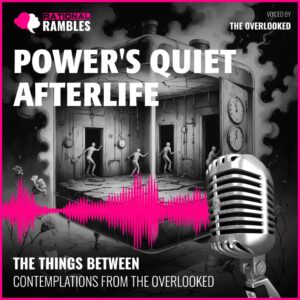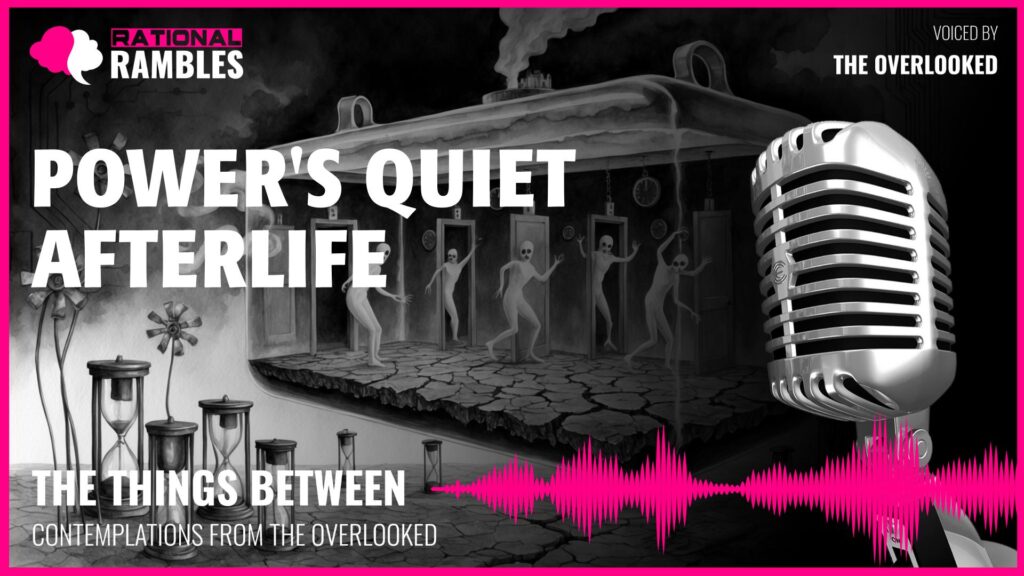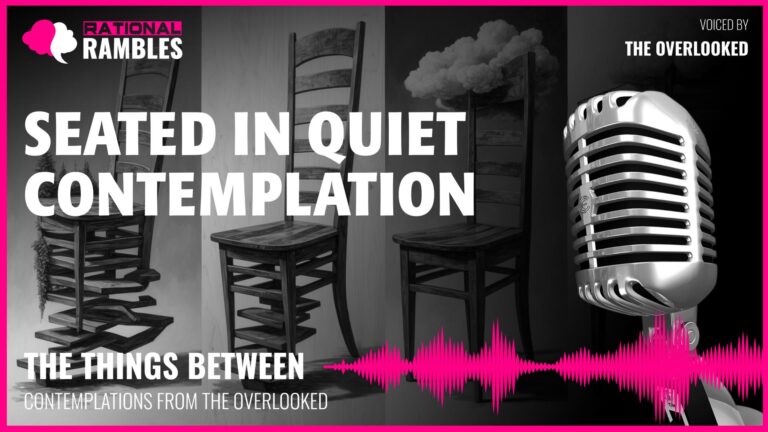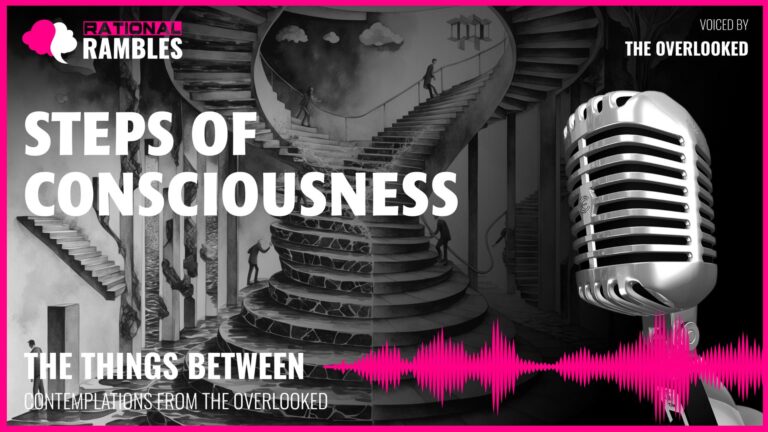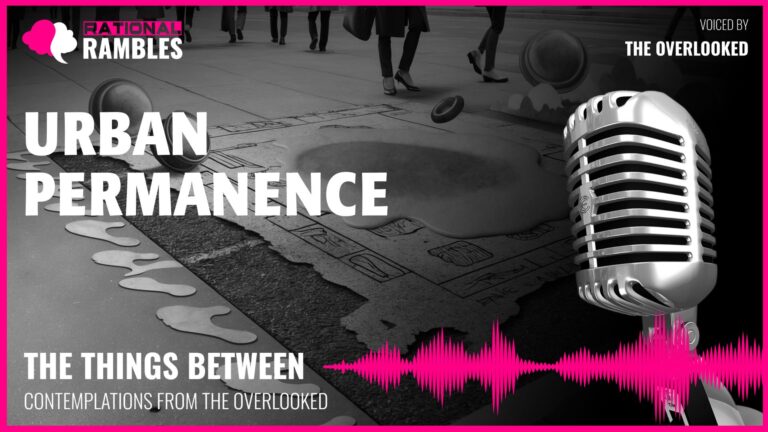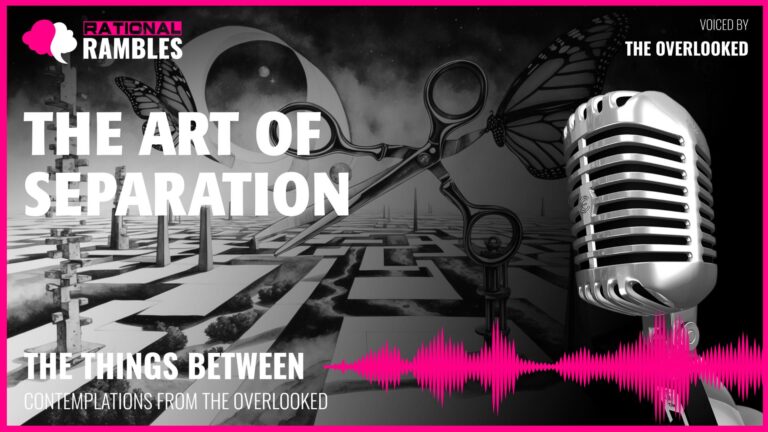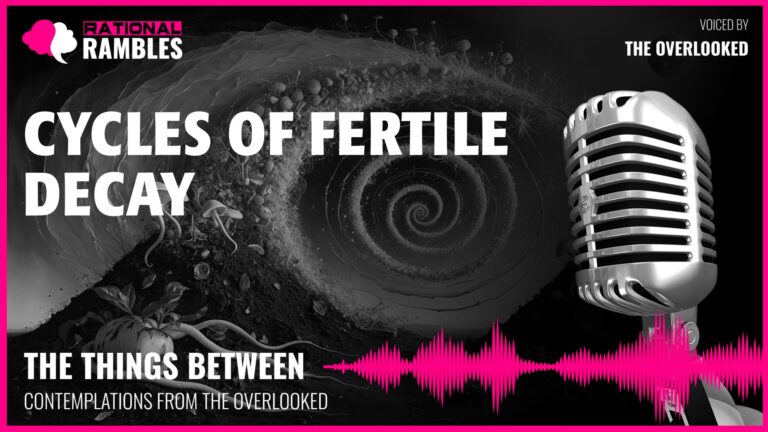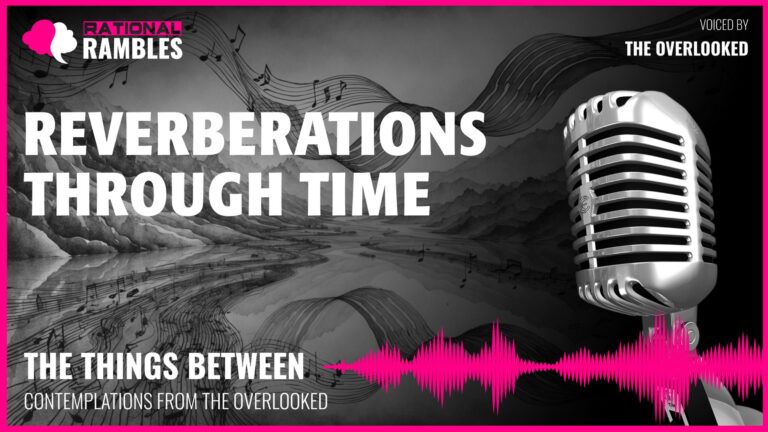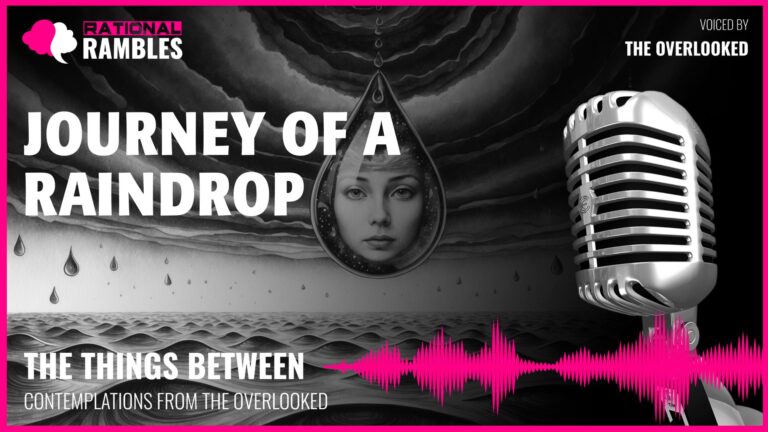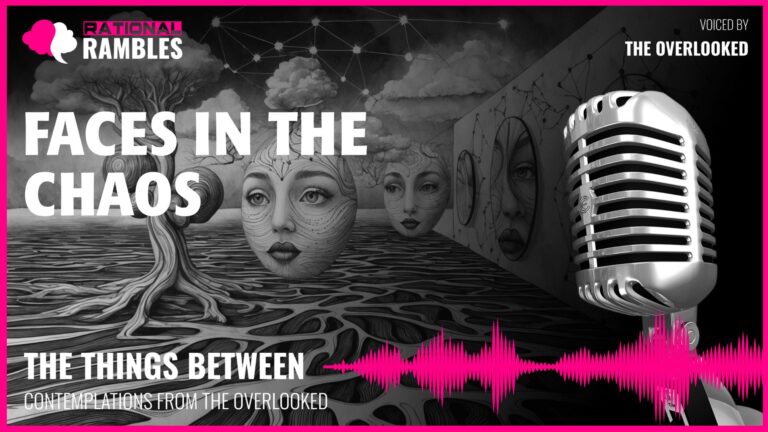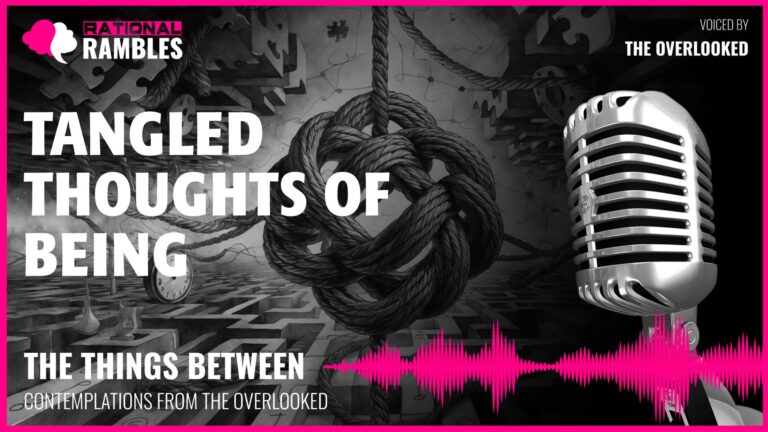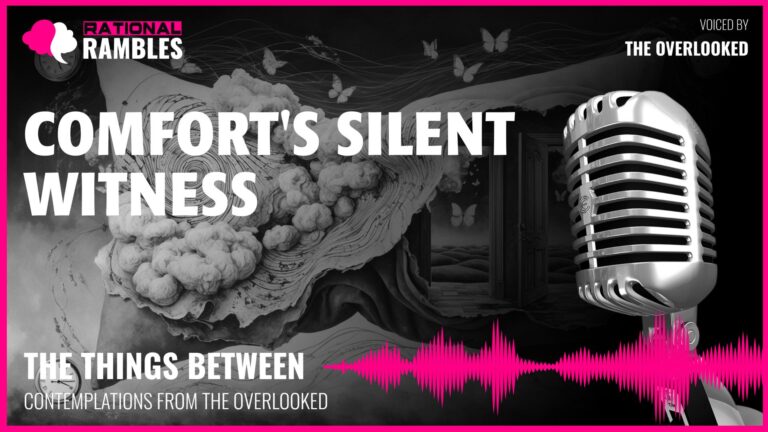The Purpose of Depletion: Finding Meaning in Expenditure
Introduction
What is the meaning of exhaustion? In a culture obsessed with productivity, energy, and perpetual vitality, we rarely pause to consider the philosophical significance of depletion. We celebrate the charged, the energetic, the full—but what of emptiness? What wisdom might we find in the state of having given everything, of being utterly spent? This philosophical inquiry examines the existential dimensions of depletion and expenditure, exploring how the act of emptying oneself might constitute the very essence of purpose and meaning.
The metaphor of energy—its storage, transfer, and eventual depletion—offers a profound framework for understanding human existence. We are, in many ways, vessels of potential that gradually transform stored capacity into action, service, and impact. Our lives, like all energy systems, follow the immutable laws of thermodynamics: nothing is created or destroyed, merely transformed. And in this transformation—this willing expenditure of our essence—we may discover the most authentic expression of purpose.
This exploration will delve into questions that arise when we confront the reality of depletion: Is there nobility in being used up completely? Does value exist only in utility? What happens to identity when function ceases? By examining the philosophical implications of exhaustion, we may uncover insights about purpose, sacrifice, legacy, and the meaning found in giving oneself completely to a cause, a connection, or a calling.
The Ontology of Emptiness
To be depleted is to experience a particular kind of existence—one characterized not by fullness but by the aftermath of having been full. Unlike nothingness, which implies an absence that never contained anything, depletion presupposes a prior state of completion, of potentiality. This distinction is crucial for understanding the philosophical significance of emptiness as a state that follows expenditure rather than a mere lack.
Emptiness as Post-Fulfillment
The existentialist philosopher Jean-Paul Sartre distinguished between two types of being: being-in-itself (être-en-soi) and being-for-itself (être-pour-soi). Being-in-itself refers to non-conscious existence, complete and self-contained, while being-for-itself describes consciousness marked by incompleteness and possibility. Depletion presents us with an interesting ontological case: a state that was once “in-itself” (complete with potential) but has fulfilled its purpose through action and expenditure, arriving at a new state that is neither full potentiality nor pure nothingness.
This post-expenditure state resembles what Eastern philosophical traditions, particularly Buddhism, have long recognized in the concept of śūnyatā (emptiness or voidness). However, while Buddhist emptiness refers to the absence of inherent existence, the emptiness of depletion acknowledges a history, a narrative of having been useful, of having transformed potential into actuality.
The Temporality of Depletion
Martin Heidegger’s conception of time as the horizon of Being offers another perspective on depletion. For Heidegger, authentic existence involves recognizing our finite temporal nature—our being-towards-death. The depleted state embodies this temporality explicitly: it represents the “having-been” of potential, the present reality of emptiness, and the future possibilities of transformation or recycling.
Depletion alters our experience of time itself. When we are full of energy, time often moves at what feels like a steady pace. But as philosopher Henri Bergson noted, our subjective experience of time—what he called “duration” (durée)—varies considerably based on our internal states. In states of depletion, time can stretch out, becoming almost meaningless as the markers that previously measured productive expenditure no longer apply.
The Materiality of Absence
There is also a material dimension to depletion that challenges our understanding of substance and form. The depleted entity maintains its physical structure even as its internal energetic state has transformed. This presents a philosophical puzzle: if form remains but function is lost, what constitutes the essential nature of the thing? Is a depleted battery still a battery if it can no longer provide power?
Aristotle’s four causes provide a framework for understanding this question. His material cause (what something is made of) and formal cause (its arrangement or appearance) remain intact in depletion, while the efficient cause (what brought it about) and final cause (its purpose) have been fulfilled. This suggests that depletion represents a completion rather than a failure—the realization of telos or purpose, not its negation.
Purpose and the Ethics of Expenditure
If depletion represents the fulfillment of purpose through complete expenditure, what ethical implications arise from this perspective? How might reconsidering the value of being “used up” transform our understanding of purpose, sacrifice, and meaning?
The Teleology of Emptying
Teleological ethics evaluates actions based on their ends or purposes. From this perspective, the purpose of potential is its actualization—its transformation from possibility into reality. Just as Aristotle saw the acorn’s purpose fulfilled in becoming an oak tree, we might view energy’s purpose as being fully expressed through its complete expenditure in service to function.
This teleological view challenges our tendency to value conservation over expenditure. If the purpose of potential is its expression through action, then holding back—maintaining energy indefinitely without putting it to use—represents a failure to fulfill one’s telos. The depleted state, rather than signifying failure, becomes evidence of purpose achieved.
The 20th-century philosopher Georges Bataille explored this concept through his theory of “expenditure” (dépense), arguing that the true nature of existence isn’t accumulation but consumption—not conservation but glorious expenditure. For Bataille, the sun stands as the ultimate example, expending its energy without receiving anything in return, giving without reserve or calculation.
Sacrifice and Value Beyond Utility
The notion of sacrifice—giving oneself fully for something beyond oneself—appears across religious and philosophical traditions. From the Christian concept of kenosis (self-emptying) to Buddhist self-sacrifice, the willing depletion of the self for others often represents the highest ethical ideal.
Emmanuel Levinas’s ethics of the Other provides a philosophical framework for understanding the value of such sacrifice. For Levinas, ethical responsibility arises in the face-to-face encounter with another person, creating an infinite obligation that precedes any calculation of utility or reciprocity. The ethical self is one that empties itself in response to the needs of others, finding meaning precisely in this willing depletion.
This perspective challenges utilitarian ethics, which might suggest conserving energy to maximize overall utility. Instead, it proposes that certain forms of complete expenditure—acts of sacrifice that empty the self for others—possess intrinsic value beyond their utilitarian calculus.
The Moral Status of the Depleted
If depletion represents the fulfillment of purpose through expenditure, what moral status should we accord to the depleted? Our culture often discards the used up, the spent, the emptied—treating depletion as a terminal state of worthlessness rather than a testament to service rendered.
Environmental philosopher Holmes Rolston III argues for the intrinsic value of natural entities beyond their instrumental usefulness to humans. Extending this logic, we might recognize the intrinsic value of the depleted—not for what they can still do, but for what they have already done, for the transformation they have already enabled.
This shift in perspective has practical implications for how we treat not only depleted objects but depleted people—those who have given their energy completely to causes, communities, or care work. Rather than discarding the depleted as no longer useful, an ethics of expenditure would honor the emptied state as evidence of purpose fulfilled and service rendered.
Identity and Transformation in Depletion
Depletion raises profound questions about identity: What happens to the self when its primary function can no longer be performed? Does identity persist beyond utility? How does transformation through expenditure relate to continuity of being?
Function and Identity
Functionalist theories of mind suggest that mental states are constituted by their functional role rather than their physical substrate. By analogy, if an entity’s identity is defined by its function, what happens when that function can no longer be performed? Is the depleted battery still a battery, or has it become something else entirely?
The philosophy of technology offers insight here. As Albert Borgmann argues, technological devices often conceal their inner workings, presenting only their function to users. When function fails, the “thing-ness” of the device suddenly becomes apparent. Depletion forces a confrontation with the material reality behind function, potentially revealing aspects of identity previously obscured by utility.
This perspective suggests that depletion doesn’t erase identity but transforms it—shifting focus from function to essence, from doing to being. The depleted entity isn’t less itself but differently itself, its identity now manifested through history and material continuity rather than active function.
The Persistence of Essence
The concept of essence—what makes a thing fundamentally what it is—has been debated since ancient times. Plato’s theory of Forms suggested that physical objects are imperfect representations of ideal Forms that constitute their true reality. From this perspective, the depleted state doesn’t diminish the connection to the essential “battery-ness” or “energy-ness” that defines the entity.
Process philosophy, articulated by Alfred North Whitehead and others, offers an alternative perspective. Rather than fixed essences, process philosophy sees reality as composed of interconnected events and experiences. The depleted entity represents not a failed instance of an ideal form but a moment in an ongoing process of transformation—its essence located not in static properties but in its history of becoming and changing.
This view aligns with the first law of thermodynamics: energy is neither created nor destroyed, merely transformed. The essence of the energy once stored in a battery continues to exist in new forms throughout the universe. Depletion doesn’t end existence but transforms it, dispersing what was once concentrated into new configurations and possibilities.
Transformation and Rebirth
Many philosophical and religious traditions understand depletion not as an endpoint but as a necessary precondition for renewal. The concept of the phoenix rising from ashes, the Hindu cycle of creation and destruction through Brahma and Shiva, the Christian notion of death preceding resurrection—all suggest that emptying is essential for rebirth.
From this perspective, complete depletion represents not merely the end of one form of existence but the necessary preparation for another. The depleted battery, through processes of recycling and reclamation, can have its materials transformed into new forms of utility and purpose—a kind of material reincarnation that maintains continuity while enabling new function.
This cyclical view challenges linear conceptions of existence that privilege the new and full over the depleted. Instead, it suggests that depletion is a necessary phase in ongoing cycles of transformation—not a failure to be avoided but a transition to be embraced as essential to the continuing story of matter and energy.
The Phenomenology of Depletion
Beyond ontological and ethical questions, depletion presents a distinctive phenomenological experience—a particular way of being-in-the-world characterized by specific sensations, temporalities, and relations to surrounding entities. How is depletion experienced from within, and what insights might this experience offer?
The Lived Experience of Emptiness
Phenomenology, pioneered by Edmund Husserl and developed by philosophers like Maurice Merleau-Ponty, examines conscious experience as it is lived rather than as it is theorized. The phenomenology of depletion reveals a particular mode of existence characterized by stillness after activity, coolness after warmth, weightlessness after substance.
This experience has spatial dimensions—the feeling of internal space once filled now hollow, of boundaries still present but containing absence rather than presence. It has temporal dimensions as well—a slowing or stopping of the internal clock that previously measured activity, a stretching of duration as the markers of expenditure disappear.
There is also an affective dimension to depletion—feelings that might include contentment in having fulfilled purpose, anxiety about future dissolution, nostalgia for past utility, or peace in the absence of demand. These are not merely subjective overlays on physical states but constitutive aspects of the depleted mode of being.
Relationality in Depletion
Martin Buber distinguished between I-It relationships (instrumental, utilitarian) and I-Thou relationships (direct, mutual, present). Depletion transforms how entities relate to one another, potentially shifting from primarily I-It relationships based on function to new forms of connection.
The depleted entity relates differently to time (existing now in an extended present rather than a future-oriented becoming), to space (occupying volume without exerting energetic influence), and to other entities (connecting through shared history rather than current utility). This transformed relationality might be viewed not as diminishment but as access to modes of connection previously unavailable.
Phenomenologist Gaston Bachelard explored how spaces hold memory and meaning beyond their current function. Similarly, the depleted entity becomes a repository of memory—its significance located not in present activity but in the history of transformation it embodies and the future possibilities it might still enable through material reclamation.
Silence and Receptivity
Depletion creates a particular kind of silence—not the absence of sound but the cessation of the internal “noise” of activity and function. This silence can be understood through Martin Heidegger’s concept of Gelassenheit (releasement or letting-be), a state of receptive awareness that allows things to reveal themselves on their own terms rather than through frameworks of utility.
The depleted state, freed from demands of function, potentially enables a form of being characterized by receptivity rather than activity, by letting-be rather than making-happen. In Buddhist terms, this might be understood as a form of sunyata (emptiness) that creates space for new possibilities, or in Taoist terms as the usefulness of the empty space in a vessel (as described in Lao Tzu’s teachings about the value of emptiness).
This perspective suggests that depletion, rather than representing merely the absence of energy or function, constitutes a positive phenomenological state with its own distinctive qualities and possibilities—a way of being that offers unique access to aspects of existence obscured during periods of activity and expenditure.
Depletion in Cultural and Historical Context
Our understanding of depletion is shaped by cultural attitudes, historical developments, and socioeconomic structures. How have different societies understood the meaning of expenditure and emptiness, and how do contemporary attitudes toward depletion reflect broader cultural values?
Cultural Variations in Valuing Expenditure
Different cultural traditions have varying relationships to the concept of depletion. Western capitalist societies often emphasize conservation, efficiency, and the maximization of output—valuing the avoidance of depletion and the maintenance of productive capacity. By contrast, certain Indigenous communities practice potlatch ceremonies that involve the deliberate expenditure of resources as a demonstration of wealth and status.
Marcel Mauss and other anthropologists have documented how gift economies operate on principles that sometimes valorize expenditure over conservation, with status accruing not to those who accumulate but to those who give most generously. These cultural variations suggest that our negative associations with depletion may be historically contingent rather than universal.
Religious traditions offer diverse perspectives as well. Christian kenosis (self-emptying), Buddhist notions of non-attachment, Sufi concepts of fana (annihilation of the self), and Hindu concepts of sacrifice all provide frameworks that find spiritual value in forms of emptying and depletion rather than perpetual fullness.
The Modern Cult of Energy
The Industrial Revolution fundamentally transformed humanity’s relationship with energy, creating what historian Vaclav Smil calls “energy civilizations” defined by their increasing capture and exploitation of energy sources. This historical development has shaped modern attitudes toward depletion, creating cultural anxieties about energy scarcity and valorizing endless productivity.
Cultural theorist Byung-Chul Han argues that contemporary society has become a “burnout society” characterized by the imperative of positive productivity and the pathologization of negativity, rest, and depletion. He suggests that this cultural attitude leads to psychological exhaustion while denying the value of restorative depletion.
Similarly, philosopher Jonathan Crary describes how late capitalism has created a “24/7” society that attempts to eliminate sleep—the natural depletion and restoration cycle—in favor of continuous productivity and consumption. These cultural forces make it difficult to recognize the philosophical value of emptiness and expenditure.
Environmental Ethics and the Value of Limits
Contemporary environmental challenges have prompted renewed philosophical attention to depletion and limits. The concept of sustainability acknowledges that resources are finite and that perpetual growth and consumption are incompatible with planetary boundaries.
Environmental philosopher Arne Naess, founder of deep ecology, advocated for “ecosophy”—a wisdom of natural limits that values equilibrium over endless expansion. Similarly, ecological economist Herman Daly has argued for a “steady-state economy” that recognizes the value of balance rather than perpetual growth.
These approaches suggest a philosophical revaluation of depletion—seeing it not as failure but as a natural and necessary aspect of existence within finite systems. By acknowledging limits and valuing the wisdom found in cycles of expenditure and renewal, environmental philosophy offers resources for reconsidering our cultural attitudes toward depletion.
The Ethics of Disposal and Renewal
What responsibilities do we have toward that which is depleted? How should we treat entities that have given everything in service to their purpose? These questions extend beyond abstract philosophy to concrete ethical concerns about disposal, recycling, and the potential for renewal.
The Afterlife of Utility
When an entity can no longer fulfill its primary function, what ethical considerations should guide our treatment of it? The common practice of discarding depleted items reflects what philosopher Martin Heidegger called a “technological enframing” (Gestell) that reduces entities to mere resources for human use, valued only for their instrumental utility.
An alternative approach would recognize what environmental philosopher Holmes Rolston III calls “storied residence”—the way entities accumulate history and meaning through their participation in human and ecological systems. From this perspective, the depleted object remains valuable as a repository of history and relationships, deserving respectful treatment even after its functional capacity is exhausted.
This ethical stance finds support in various philosophical traditions. Kantian ethics might extend the principle of treating entities as ends rather than mere means to include respecting the “retired service” of depleted objects. Virtue ethics would suggest that our treatment of the depleted reflects and shapes our character, with proper disposal and recycling representing virtues of gratitude and respect.
Responsibility and Cradle-to-Grave Ethics
Environmental ethicists have developed the concept of “cradle-to-grave” responsibility, suggesting that creators and users of objects bear ethical responsibility for their entire lifecycle, including proper disposal. This approach rejects the externalization of costs that occurs when depleted items are simply discarded without consideration of their continuing environmental impact.
Philosopher Hans Jonas’s “imperative of responsibility” extends ethical concern temporally, arguing that our actions should be compatible with the permanence of genuine human life on earth. This principle demands attention to the long-term consequences of how we handle depleted resources, especially those that may become harmful in their afterlife (like leaking batteries or persistent plastics).
This perspective transforms depletion from a terminal state after which responsibility ends to a transition point that carries its own distinct ethical demands. The depleted object continues to exist in material reality, requiring ongoing ethical consideration even after its functional purpose has been fulfilled.
Reclamation and the Ethics of Recycling
The possibility of recycling—of reclaiming the materials from depleted objects for new purposes—introduces additional ethical dimensions. Philosopher Kate Soper has explored what she calls “alternative hedonism,” finding aesthetic and ethical satisfaction in sustainable practices that include reuse and recycling rather than endless consumption of the new.
The ethics of recycling connects to broader questions about circular versus linear economies. Cradle-to-cradle design philosophy, developed by William McDonough and Michael Braungart, reimagines products as temporary assemblages of materials that will eventually return to either technical or biological cycles. This approach sees depletion not as an endpoint but as a phase in ongoing material cycles.
This circular perspective aligns with philosophical traditions that emphasize cycles of transformation rather than linear progress. From Buddhist conceptions of samsara to Nietzsche’s eternal return, these traditions find meaning in repetition and renewal rather than in endless novelty and accumulation.
Depletion as Wisdom: Philosophical Insights from Emptiness
Beyond the ontological, ethical, and phenomenological aspects of depletion lies a deeper question: What wisdom might be found in the state of having given everything? What insights about existence emerge from the perspective of emptiness after expenditure?
The Wisdom of Completion
There is a distinctive wisdom that comes from having fulfilled one’s purpose completely—from having actualized all potential and transformed it into impact. This wisdom differs from the perspective of potential, which remains oriented toward future possibilities rather than present completion.
Philosopher Pierre Hadot explored how ancient philosophical traditions understood philosophy as a way of life aimed at transformation rather than mere intellectual understanding. From this perspective, wisdom isn’t just knowing intellectually but embodying knowledge through complete realization—a kind of existential depletion where potential is fully actualized.
The depleted state represents a form of completion that modern culture, with its emphasis on endless growth and development, rarely acknowledges. There is wisdom in recognizing when something has fulfilled its purpose, when transformation has been accomplished, when the narrative arc has reached its natural conclusion.
Kenotic Wisdom: The Power in Emptying
Several philosophical and religious traditions find paradoxical power in emptiness and self-emptying. The Christian concept of kenosis (Christ’s self-emptying in the incarnation) suggests that divine power manifests precisely through willing vulnerability and expenditure. Similarly, Taoist wisdom finds strength in emptiness and yielding rather than in fullness and resistance.
Philosopher Simone Weil explored a similar paradox in her concept of “decreation”—a willing self-emptying that creates space for the divine. For Weil, true agency comes not through self-assertion but through attentive waiting and receptivity, a form of power discovered in purposeful emptiness.
This kenotic wisdom challenges conventional understandings of power as accumulation and retention. Instead, it suggests that the highest form of power might be found in the capacity for complete expenditure—in the ability to give all without calculation or reserve.
Mortality and Meaning
The depleted state offers a perspective on finitude that applies to human existence as well. Philosophers from Epicurus to Heidegger have argued that confronting mortality is essential for authentic existence, that the recognition of limits is what creates meaning rather than diminishing it.
Bernard Williams suggested that immortality would ultimately lead to unbearable boredom and meaninglessness—that human life derives its value precisely from its limited duration. Similarly, Wallace Stevens wrote that “Death is the mother of beauty,” suggesting that transience and finitude are what give existence its poignancy and significance.
From this perspective, the depleted state represents not failure but the natural culmination of finite existence. There is wisdom in recognizing, as physician and philosopher Lewis Thomas suggested, that “the capacity to die is as essential to life as the capacity to live.” The depleted battery, having given all its energy, exemplifies this natural completion—not a tragedy but a fulfillment.
Contemporary Applications: Depletion in Human Experience
The philosophical insights derived from examining depletion have practical applications to human experience, particularly in areas where exhaustion, burnout, sacrifice, and renewal play central roles. How might this philosophy of depletion inform our understanding of contemporary challenges?
Burnout and the Ethics of Human Energy
The contemporary epidemic of burnout—psychological, emotional, and physical depletion resulting from prolonged stress—raises urgent questions about sustainable expenditure of human energy. Psychologist Christina Maslach defines burnout as involving emotional exhaustion, depersonalization, and reduced personal accomplishment—a comprehensive depletion of the professional self.
The philosophy of depletion offers several insights relevant to burnout. First, it challenges the cultural narrative that valorizes endless productivity without acknowledgment of natural limits and necessary restoration cycles. Second, it suggests that meaning may be found not in avoiding depletion but in ensuring that one’s energy is depleted in service to worthwhile purposes rather than squandered on meaningless tasks.
Philosopher Martha Nussbaum’s capabilities approach emphasizes that human flourishing requires not just freedom from interference but positive support for essential capacities. Applied to the problem of burnout, this suggests that ethical work environments must recognize human energetic limits and provide structures for renewal and restoration.
Care Work and Gendered Depletion
Feminist philosophers have noted that care work—predominantly performed by women—often involves significant personal depletion without corresponding social recognition. Philosopher Virginia Held argues for recognizing care as a fundamental aspect of human existence rather than a private matter, suggesting that ethical societies must value and sustain those who deplete themselves in care for others.
Political philosopher Joan Tronto distinguishes care from service, arguing that ethical care involves attention to power dynamics and the needs of both care receiver and caregiver. This perspective highlights the ethics of sustainable depletion—expenditure that doesn’t destroy the source but allows for renewal and continuation.
The philosophy of depletion can help articulate an ethics of care that honors self-emptying for others while insisting on structures of renewal and reciprocity that prevent permanent depletion of caregivers. It offers a framework for valuing the often invisible work of those who expend their energy for the vulnerable without reducing that work to transactional calculations.
Environmental Depletion and Intergenerational Ethics
The depletion of natural resources raises profound ethical questions about intergenerational justice and environmental responsibility. Philosopher Hans Jonas’s principle of responsibility argues that current generations have ethical obligations to future ones, challenging the temporal myopia that allows resource depletion without concern for long-term consequences.
Environmental philosopher Arne Naess’s concept of “ecosophy” suggests that wisdom lies in recognizing the interconnection of all living beings and respecting natural cycles of use and renewal. This perspective values sustainable forms of energy expenditure that allow for natural regeneration rather than terminal depletion.
The philosophy of depletion helps distinguish between forms of resource use that honor natural cycles and those that permanently diminish capacity. It suggests ethical criteria for distinguishing between renewable expenditure (like sustainable harvesting of forests that allows regeneration) and terminal depletion (like extraction of fossil fuels that cannot be renewed on human timescales).
Conclusion: Towards an Ethics of Dignified Depletion
Our exploration of the philosophical dimensions of depletion reveals that emptiness following expenditure is not merely an absence or a failure but a state with its own distinctive ontology, ethics, and wisdom. This understanding challenges cultural attitudes that value only the full, the charged, the potential-laden while discarding or devaluing the spent, the empty, the fully-expressed.
A comprehensive philosophy of depletion suggests several principles for an ethics of dignified depletion—an approach to emptiness that honors the value of complete expenditure while recognizing the possibilities for renewal and transformation:
- Honor in completion: Recognizing the dignity in having fulfilled one’s purpose completely, in transforming all potential into actuality.
- Responsibility beyond function: Acknowledging ethical obligations that extend beyond the period of active utility, including proper disposal or recycling.
- Value in history: Appreciating depleted entities not just for what they can still do but for what they have already done—for the transformations they have enabled.
- Wisdom in limits: Finding meaning and significance in finitude rather than denying natural limits.
- Renewal through cycles: Recognizing that depletion need not be terminal but can be part of ongoing cycles of transformation and renewal.
These principles apply not just to physical objects but to human lives and energy—offering guidance for how we might approach work, care, creativity, and mortality itself. They suggest that meaning is found not in endless accumulation and conservation but in purposeful expenditure and willing transformation.
Perhaps the most profound insight from this philosophy of depletion is that purpose is fulfilled not through perpetual retention of potential but through its complete expression—that the most meaningful existence is one in which all capacity is transformed into impact, all potential into actuality. As the poet Mary Oliver famously asked: “Tell me, what is it you plan to do with your one wild and precious life?” A philosophy of depletion would answer: Give it completely, transform it fully, empty yourself without reserve—for in this complete expenditure lies the very essence of purpose and the deepest expression of meaning.
In a culture that fears depletion and chases endless energy, this philosophy offers a counterpoint: a recognition that there is profound dignity in the state of having given everything, that the depleted vessel contains a wisdom unavailable to that which remains perpetually full. Through this lens, we might learn to see emptiness not as failure but as fulfillment—not as an end to be avoided but as a completion to be honored.


